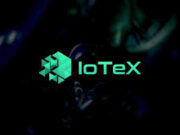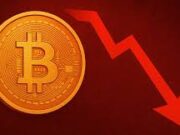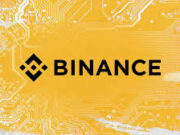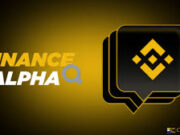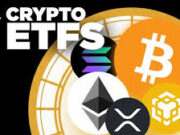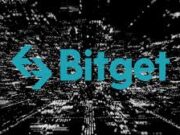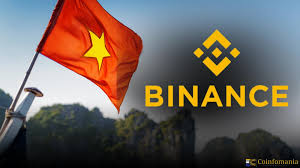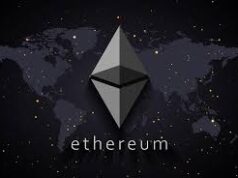Vietnam is shifting from cautious crypto flirtation to bold ambition — and a high-profile meeting between Binance CEO Richard Teng and Deputy Prime Minister Nguyễn Hoa Binh is sending a clear signal across Southeast Asia. On September 24, 2025, during Teng’s visit to the UAE, Binh urged Binance to open a headquarters in Da Nang and offered a senior advisory role in building Vietnam’s upcoming International Financial Center (IFC). (The Investor)
Let’s break down why this development matters, how it fits into Vietnam’s regulatory pivot, and what it could mean for crypto users, investors, and the region at large.
What Happened in Abu Dhabi — And Why It Matters
During a diplomatic meeting in the United Arab Emirates, Deputy PM Binh and CEO Teng discussed blockchain infrastructure, regulatory frameworks, and digital asset integration into Vietnam’s evolving financial architecture. (Cryptonews)
Binh didn’t just talk — he formally invited Teng to act as a senior advisor to Vietnam’s International Financial Center, and moreover urged Binance to establish a regional HQ in Da Nang. (The Investor)
To formalize their cooperation, Binance signed a Memorandum of Understanding (MOU) with the Da Nang People’s Committee, focusing on blockchain and digital asset development. (en.baodanang.vn)
In short: the meeting wasn’t just symbolic. It’s an invitation and blueprint rolled into one, combining political backing, institutional legitimacy, and operational ambition.
Vietnam’s Regulatory Pivot: From Gray Zone to Pilot Program
To understand why this meeting lands at such a pivotal moment, you need to see Vietnam’s regulatory shift:
- In June 2025, the Vietnamese National Assembly passed the Law on Digital Technology Industry, which for the first time recognized crypto and digital assets in law, effective January 1, 2026. (CoinDesk)
- Then in September 2025, Resolution 05/2025/NQ-CP established a five-year pilot framework for the crypto market (2025–2030), imposing conditions such as minimum charter capital, VND-only trading, compliance mandates (AML, cybersecurity), and timelines for phasing out unlicensed providers. (english.luatvietnam.vn)
- Under the resolution, six months after the first license is granted, all domestic crypto transactions must go through duly licensed platforms — or face regulatory consequences. (english.luatvietnam.vn)
This shift transforms Vietnam’s strategy: from tolerating informal crypto activity to capturing, structuring, and regulating it. (Blockhead)
Thus, the Binance-Vietnam meeting comes at a moment of regulatory convergence — when the government is actively seeking operational partners to make the pilot real.
What’s in It for Binance?
Why would Binance accept this invitation? Because it’s a rare opportunity:
- First mover advantage in a large, under-served market
Vietnam already ranks among the top global countries for crypto adoption, with millions trading via peer-to-peer and over-the-border platforms. (Blockhead) - Influence over regulation and infrastructure
As a potential senior advisor, Binance could shape the rulebook — ensuring the sandbox and eventual exchange regime align with its business model. (Cryptonews) - Brand and operational legitimacy
Establishing a Da Nang HQ and being embedded in Vietnam’s IFC would signal legitimacy in the eyes of regulators, institutional investors, and users. - Ecosystem expansion
With local presence, Binance can launch localized products (VND pairs, NFT platforms, tokenization services), tap into the talent pool, and integrate with Vietnam’s broader fintech ambitions.
Of course, risks exist — regulatory delays, capital constraints, geopolitical risk — but for Binance, Vietnam offers a potential flagship expansion in Southeast Asia.
Broader Implications: ASEAN, Users & Institutions
This isn’t just a bilateral play; the ripple effects may reshape Southeast Asia’s crypto landscape.
- Regional influence: Vietnam’s approach, if successful, could influence regulatory norms across ASEAN, pushing toward harmonized frameworks.
- Retail & developer impact: Users may gain access to more compliant, local exchanges; developers might see funding, on-chain infrastructure, and regulatory support.
- Institutional entry: With a regulated market, institutions (asset managers, tokenization firms, green bonds) could more safely enter Vietnam.
- Challenges & caveats: Overreliance on a single exchange risks centralization; further, competing interests (banks, local exchanges) may push back.
What to Watch in 2026 & Beyond
- When will the first crypto service licenses be awarded under the pilot?
- Will Binance or a joint venture effectively operate a Binance-branded Vietnamese exchange?
- Can Da Nang realistically evolve into a fintech + blockchain hub?
- Will other exchanges (Bybit, OKX, local players) respond with their own bids?
- How will the pilot’s limits (capital requirement, foreign ownership caps) shape the competitive landscape?
Final Thoughts
Vietnam’s call to Binance is no mere PR stunt. It’s a strategic crossroads — where political will, regulatory clarity, and operational capabilities converge. If executed well, Vietnam could become a Southeast Asian exemplar of crypto integration. But execution matters: the sandbox has to be real, regulation must be credible, and partnerships must balance innovation with oversight.
If you’re a trader, developer, or crypto-curious investor, keep an eye on Da Nang. The next wave of opportunity may just come from Vietnam.
References & Further Reading
- “Vietnam passes landmark law recognizing crypto assets” — CoinDesk (CoinDesk)
- “Government resolves to facilitate crypto asset market operation (Resolution 05/2025)” — LuatVietnam (english.luatvietnam.vn)
- “Binance may establish office in Vietnam’s Da Nang; CEO Teng signs MOU” — CryptoNews (Cryptonews)
- “Vietnam urges Binance to open Da Nang office” — E.VnExpress (VnExpress International)
- “Vietnam eyes Binance for digital asset hub in Da Nang” — VietnamNet (VietNamNet News)



